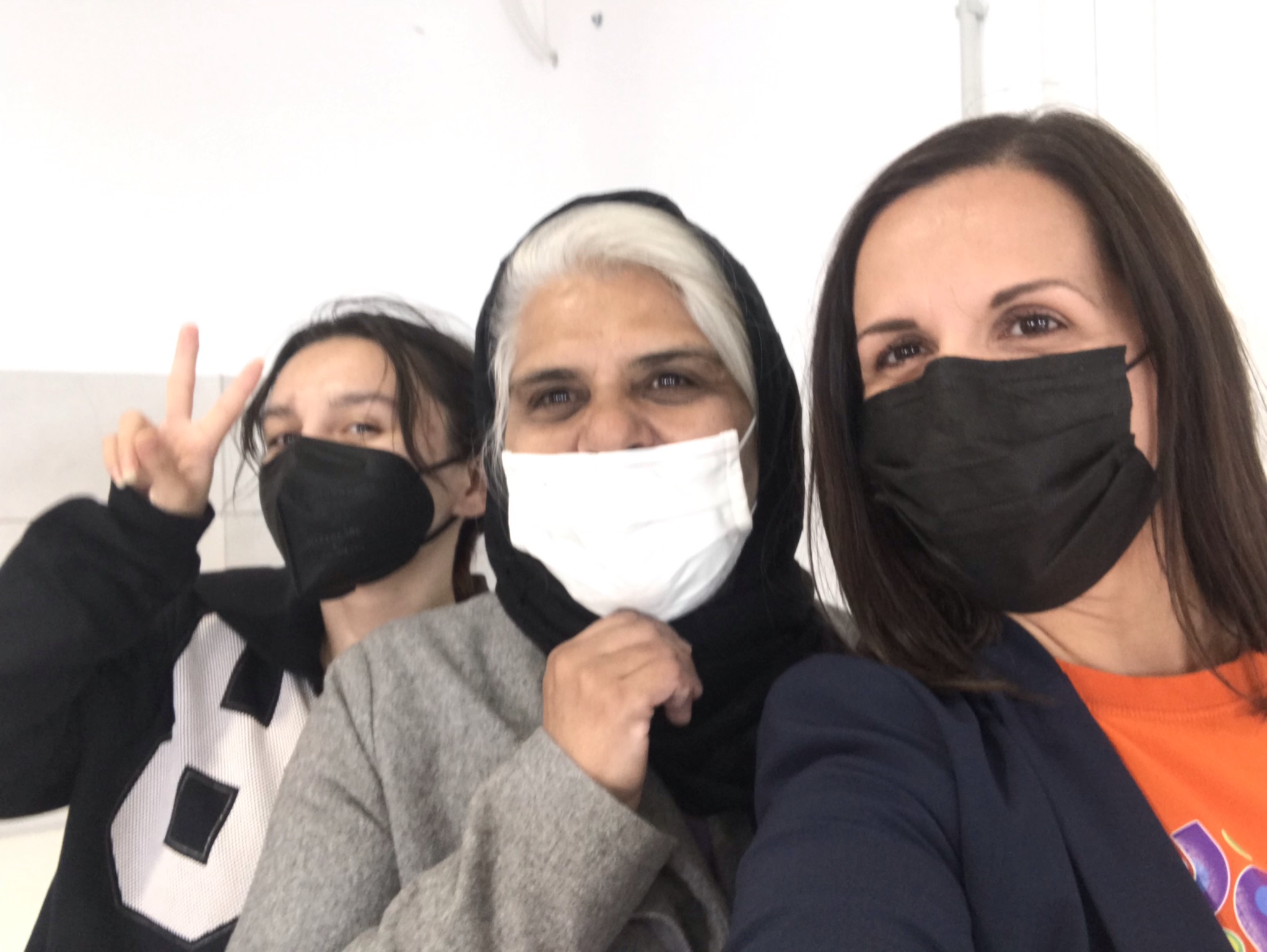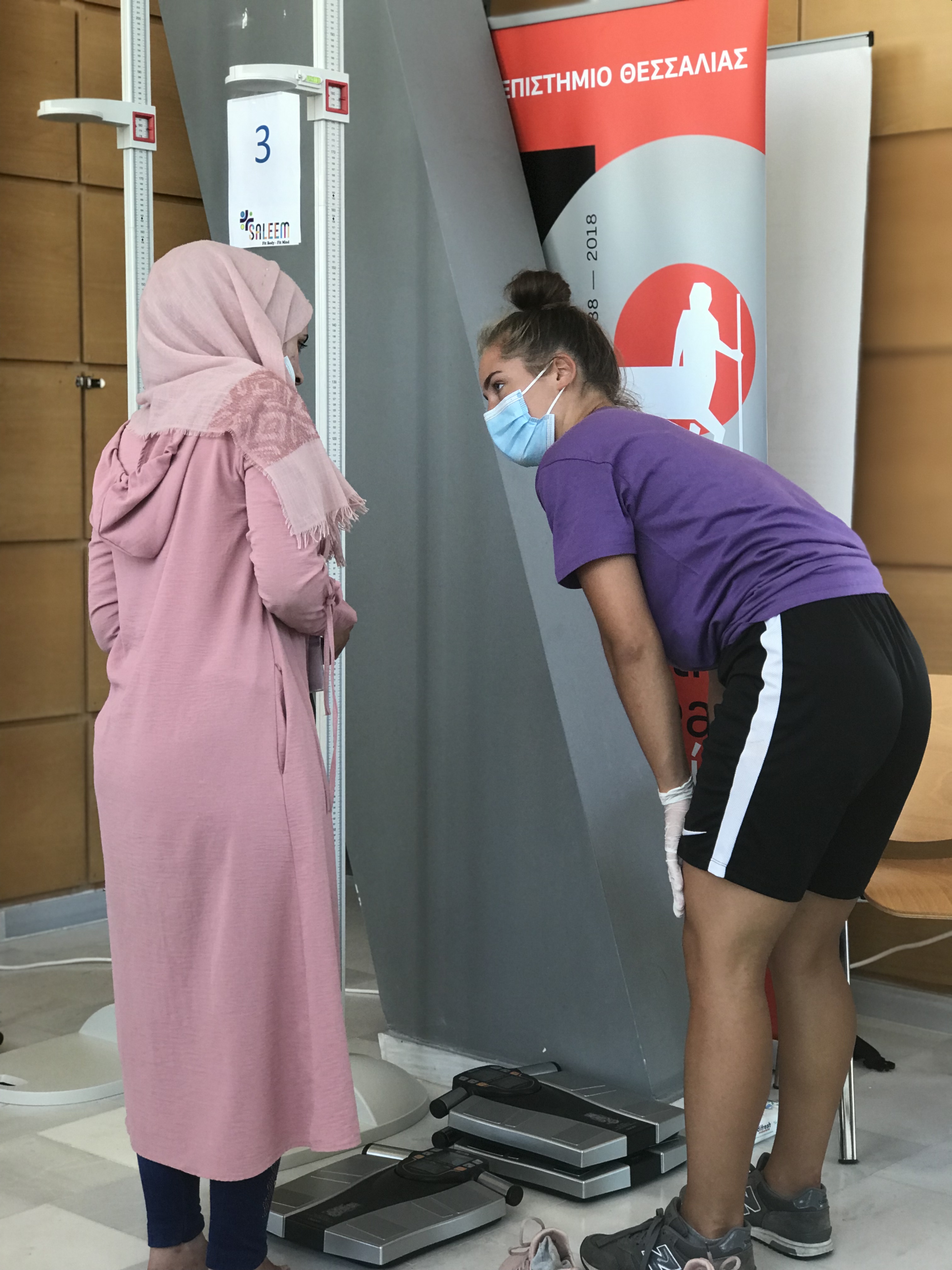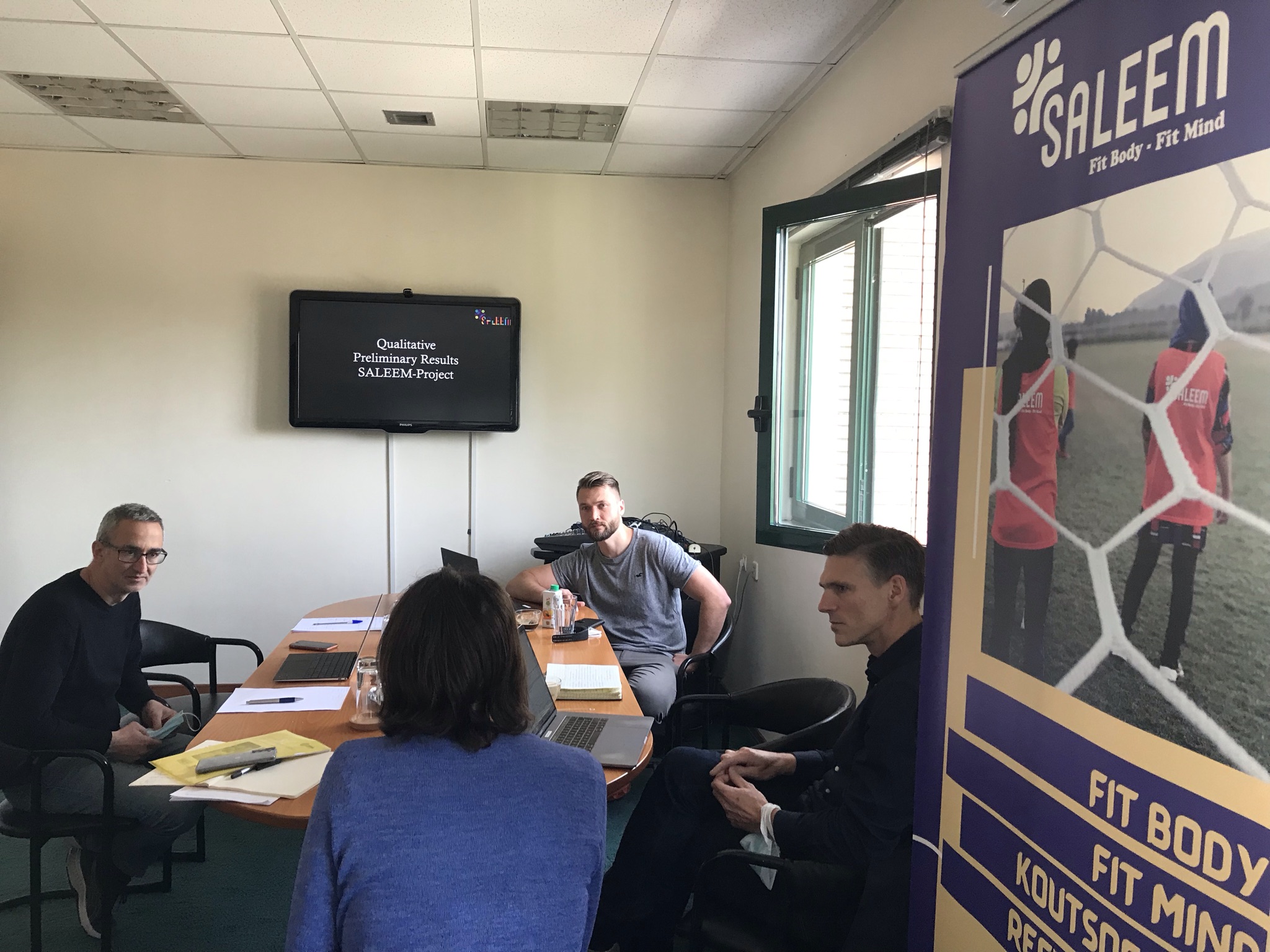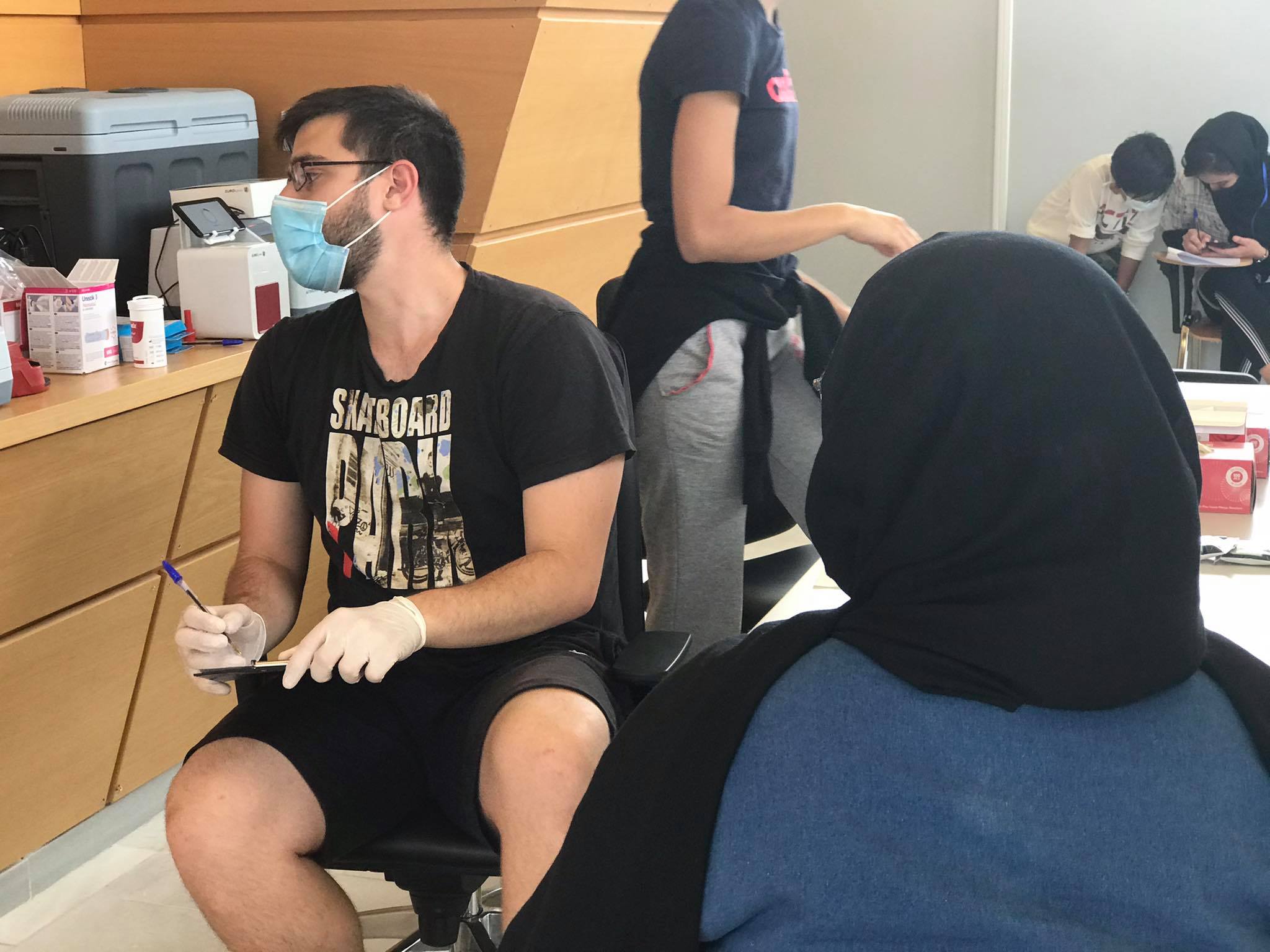An important paper has been released from the SALEEM project, a large initiative organized by the University of Basel in Switzerland and the University of Thessaly in Greece, which has been running since 2021 in a Greek refugee camp.
The project was a randomized controlled trial that aimed to examine the impact of an exercise and sport intervention on the mental health, physical fitness, and cardiovascular risk markers of refugees. The project continues to offer sports and
exercise opportunities to camp residents.
The paper is titled "Effects of a co-designed exercise and sport intervention on cardiorespiratory fitness and metabolic syndrome components among individuals living in a refugee camp in Greece: A randomized controlled trial.
Congratulations to Florian and the rest of the team!
Florian Knappe a, Konstantinia Filippou b, Antonis Hatzigeorgiadis b, Ioannis D. Morres c, Emmanouil Tzormpatzakis b, Elsa Havas b, Harald Seelig a, Sebastian Ludyga a, Flora Colledge d, Marianne Meier e, Yannis Theodorakis b, Roland von Känel f, Uwe Pühse a, Markus Gerber a
a Department of Sport, Exercise and Health, University of Basel, Grosse Alle 6, Basel CH-4052, Switzerland
b Department of Physical Education and Sport Sciences, University of Thessaly, Trikala 42100, Greece
c Department of Nutrition and Dietetics, University of Thessaly, Trikala 42132, Greece
d Department of Health Sciences and Medicine, University of Lucerne, Lucerne 6005, Switzerland
e Interdisciplinary Center for Gender Studies, University of Bern, Bern 3012, Switzerland
f Department of Consultation-Liaison Psychiatry and Psychosomatic Medicine, University Hospital Zurich, University of Zurich, Zurich 8091, Switzerland
Abstract
Background
The metabolic syndrome epidemic, including in forcibly displaced individuals, requires cost-effective prevention and treatment strategies. Yet, the health needs of forcibly displaced individuals often remain underserved. Our study evaluated the effect of a co-designed exercise and sport intervention on cardiorespiratory fitness and metabolic syndrome components among individuals in a refugee camp in Greece and examined the indirect effect through cardiorespiratory fitness on metabolic syndrome components.
Methods
We conducted a randomized controlled trial involving an intervention and a wait-list control group with n = 142 (52.8 % women) forcibly displaced Southwest Asians and Sub-Saharan Africans. The intervention group participated for 10 weeks in exercise and sport activities. Outcomes were cardiorespiratory fitness and single metabolic syndrome components. Effects were analyzed with structural equation modeling.
Results
In total, 62.7 % of participants presented with low cardiorespiratory fitness levels (<40th percentile), and 24.6 % met the criteria for metabolic syndrome. In the intervention group, 73.5 % attended the exercise and sport sessions at least once a week. There was evidence for a direct intervention effect on cardiorespiratory fitness, ßdirect = 0.12, p = 0.022, but not for any of the metabolic syndrome components (p ≥ 0.192). Cardiorespiratory fitness significantly facilitated the intervention's indirect effect on abdominal obesity, ßindirect = −0.03, p = 0.012, high diastolic blood pressure, ßindirect = −0.04, p = 0.011, and elevated triglycerides, ßindirect = −0.03, p = 0.025.
Conclusion
Implementing exercise and sport activities in a refugee camp in Greece effectively reaches a wider target population and improves cardiorespiratory fitness among forcibly displaced individuals. The intervention contributes to a decrease in abdominal obesity, high diastolic blood pressure and elevated triglycerides indirectly via improved cardiorespiratory fitness.




